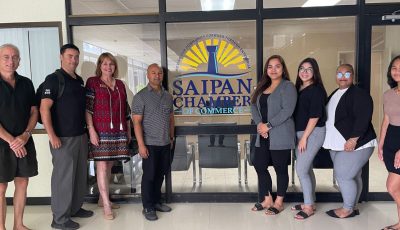NMC: Statements of account acceptable in place of 1098-T
The Northern Marianas College continues to work on issuing out Form 1098-T to its students. Meanwhile, the college said, statements of account have been and will be accepted by the CNMI Division of Revenue and Taxation as an acceptable substitute.
If eligible, students can use their 1098-T to avail of tax credits, tuition refunds, fee and tuition deductions, and other benefits for the educational costs they’ve paid out during a tax year.
The college said last week they continue to make the issuance of these forms a “top priority.” They have never issued the forms in past years, according to college sources earlier.
The college said last week that statements of account are acceptable substitutes for these forms.
“The CNMI Division of Revenue and Taxation has accepted these statements in the past and continues to accept statements in lieu of Form 1098-T this year as well,” the college said.
NMC chief financial officer Tracy Guerrero said the college has already applied for a transmitter code from the Internal Revenue Service for these forms, and are “now waiting a response.”
In order for NMC to issue Form 1098-T to students, the college first needs to secure this code, she said.
In addition, she said, they are required to use official IRS tax forms only, which is not available online and are only available in hard copies from the IRS.
The college has ordered the official 1098-T forms from the IRS.
“The college hopes to issue the Form 1098-T to eligible students as soon as possible and is now awaiting a response from the IRS via mail, which often takes months,” she said.
According to IRS, eligible educational institutions must furnish Form 1098-T or acceptable substitutes to students who have had out-of-pocket payments for “qualified educational expenses” such as tuition, fees, and books.
IRS guidelines also state that institutions do not have to furnish Form 1098-T for courses for which no academic credit is offered, even if the student is otherwise enrolled in a degree program; for nonresident alien students, unless requested by the student; for students whose qualified tuition and related expenses are entirely waived or paid entirely with scholarships; and for students whom the college does not maintain a separate financial account and whose qualified tuition and related expenses are covered by a formal billing arrangement between an institution and the student’s employer or a governmental entity, like the Department of Veteran’s Affairs or the Department of Defense.
Students or persons who can claim the student as a dependent may be able to claim an education credit on Form 1040CM or 1040A-CM, only for the qualified tuition and related expenses that were actually paid in 2014.
Individual students should consult with a professional tax preparer or see IRS Pub. 970, Tax Benefits for Education regarding any other questions they may have about educational tax credits or possible tax liability for grants and scholarships which may be considered taxable to the extent that they are not used for “qualified educational expenses,” according to IRS.



























